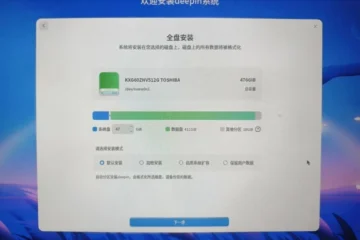The rise of artificial intelligence (AI) has drastically transformed the cybersecurity landscape, making it a constant battle between defenders and high-ranking cybercriminals. Eugene Kaspersky, the founder of the renowned cybersecurity firm Kaspersky, is urging the industry to rethink its approach to digital security. He proposes the creation of unhackable systems—devices and infrastructure immune to cybercrime by design—as a potential solution to combat these cyber threats.
The core of Kaspersky’s warning is the rapid pace at which AI is being weaponized by malicious actors. He noted that AI-driven attacks are becoming more common and far more dangerous. Cybercriminals are no longer relying on traditional tactics; instead, they are leveraging advanced technologies like AI to automate and scale their attacks. This unprecedented level of coordination and agility makes it difficult for traditional defenses to keep up.
“AI is in the hands of the bad guys,” Kaspersky remarked, highlighting the growing use of AI in creating deepfakes and executing AI-powered social engineering attacks. He even advised individuals to be skeptical of communications that appear to come from familiar sources, stating, “If someone calls you, don’t trust anyone. Even if yourself calls yourself, don’t trust.”
The Call for “Unhackable Systems”
Despite the data of continuous cyber threats that target organizations almost every day, Kaspersky emphasized that the solution is not merely adding more layers of security. Traditional defense strategies, focused on patching vulnerabilities and responding to incidents, are ultimately ineffective, according to Kaspersky. Instead, he advocates for a paradigm shift: the creation of systems that are not just secure but “cyber immune” by design.
At GITEX Asia 2025, Kaspersky showcased a prototype device designed with this principle in mind—an architecture so limited that it could only perform basic functions like calling and messaging. This device, which Kaspersky described as “unhackable systems,” represents a glimpse into a future where cybersecurity is integrated into the very design of systems, leaving little room for exploitation.
A Cautiously Optimistic Outlook for the Future of Cybersecurity
Although this technology (unhackable systems) is not yet ready for mass-market smartphones, Kaspersky believes it has great potential for industrial systems and critical infrastructure. He stressed that AI, while a tool for cybercriminals, also holds promise for security experts. His company already incorporates AI into at least six different projects, highlighting the dual-edged nature of the technology.
However, Kaspersky warned that relying solely on reactive measures like vulnerability patches and incident responses will not be enough to address the growing scale of cyber threats. He advocates for a more proactive approach—one that involves designing systems with tightly controlled permissions and drastically reducing the attack surface.
Moreover, Kaspersky emphasized the need for broader collaboration between the public and private sectors, as well as a cultural shift in how cybersecurity is approached. He also called for greater public education on digital threats, stressing that cybercrime is a global problem with daily consequences. “Every day, up to half a million new unique pieces of malware are created and planted on the internet,” Kaspersky noted. “The cyber world is getting more and more aggressive.”
Despite these daunting statistics, Eugene Kaspersky remains cautiously optimistic about the future of cybersecurity. He believes that, with the right approach, including the development of unhackable systems and innovative technologies, the fight against cybercrime can be won. “All that is bad news. But if we have good news, we will survive,” Kaspersky concluded, highlighting his commitment to advancing cybersecurity and building a safer digital world.



0 Comments